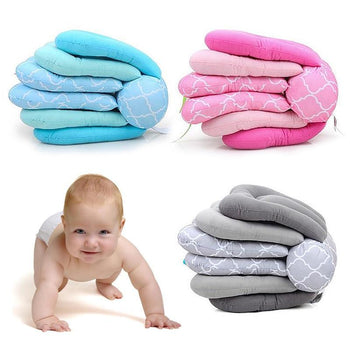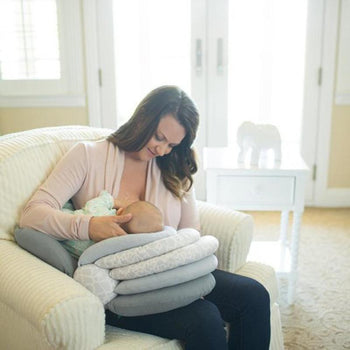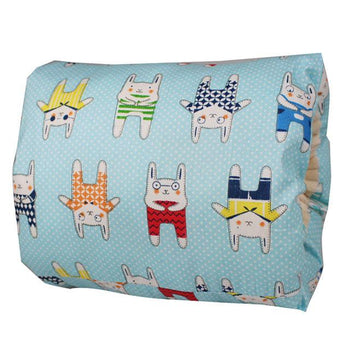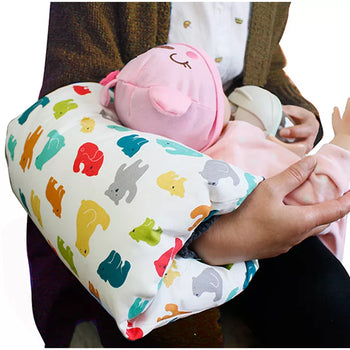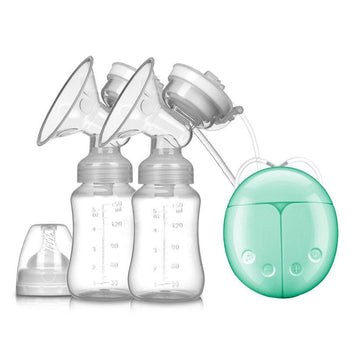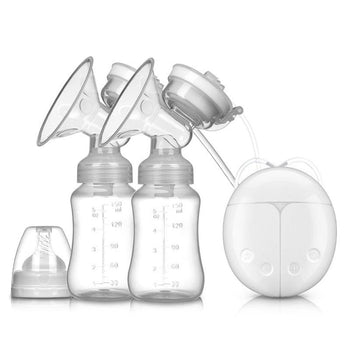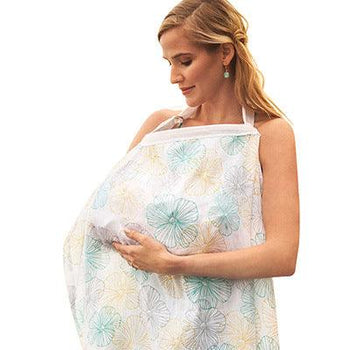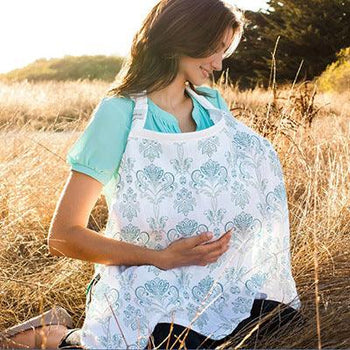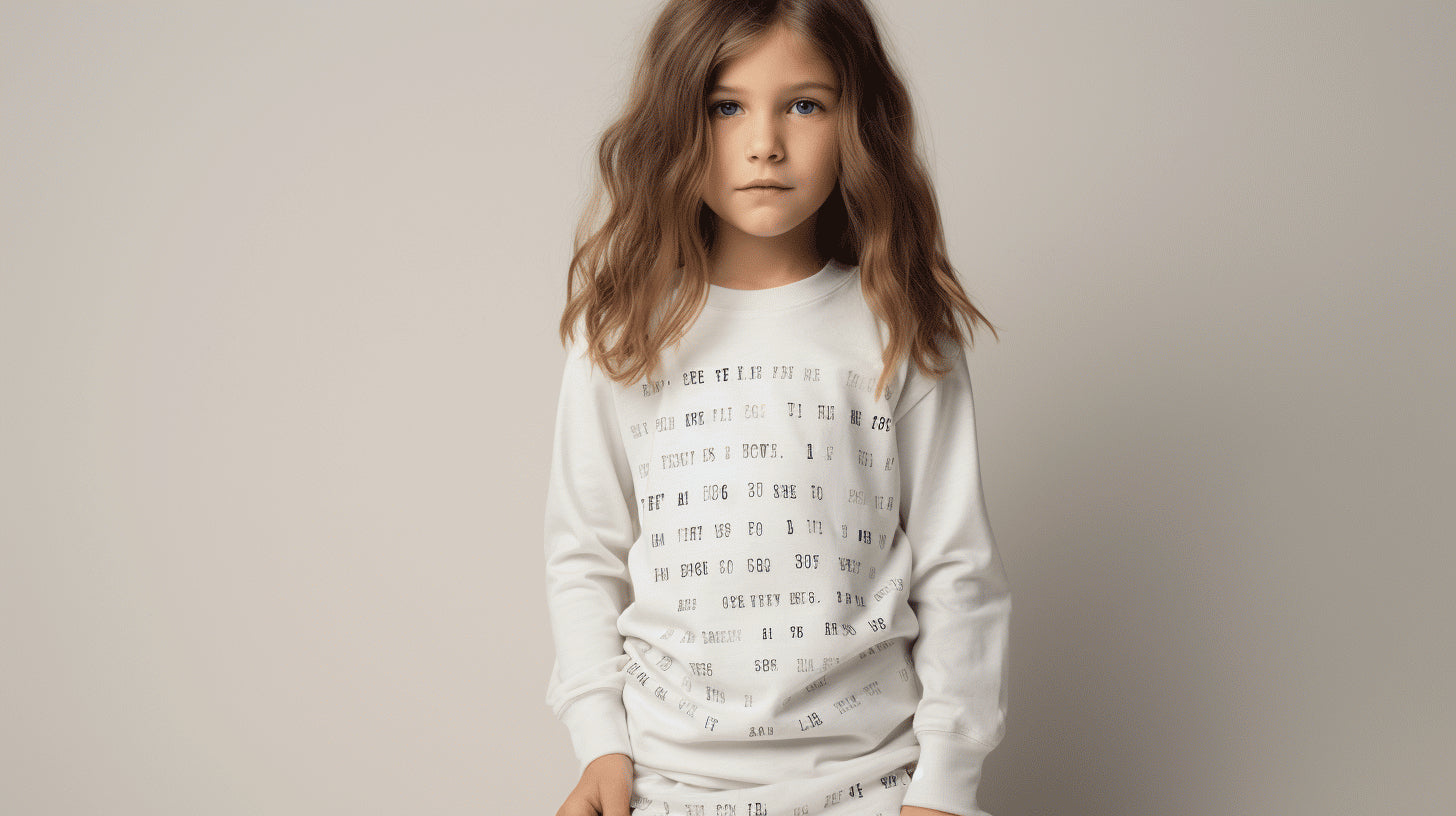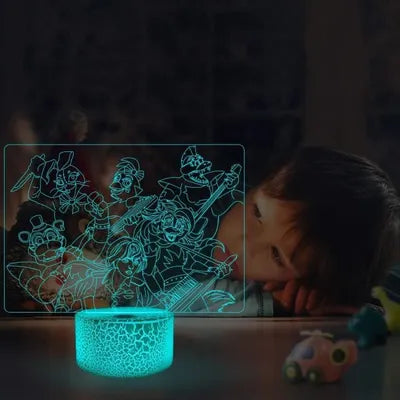Summer is synonymous with heat, although breastfeeding is a natural process, it can be difficult to achieve at this time. The heat makes breastfeeding uncomfortable for mother and baby, and there are other concerns like dehydration and sun protection. Here are six tips to make breastfeeding easier in the summer.
Remember to stay well hydrated when breastfeeding
As any mother knows, breastfeeding can be a difficult task, especially during the heat of summer. It is very important to stay hydrated in order to maintain good milk supply and avoid potential health problems.
Dehydration can lead to decreased milk supply and an increased risk of infection. Also, dehydration can cause fatigue, headaches and dizziness.
For these reasons, it is important for breastfeeding mothers to drink plenty, especially water. You should drink between 2.5 and 3 liters of water per day.
To make sure you're drinking enough, it's a good idea to keep a bottle of water with you at all times. Drink small sips of water throughout the day, even if you are not thirsty.
In addition to drinking plenty, you should also consume water-rich foods. Fruits and vegetables like watermelon, cucumber, and tomatoes are good choices.
Cold water or fruit juice can be particularly refreshing and help stimulate milk production. By staying hydrated, mothers can make summer breastfeeding a little easier for themselves and their baby.
Do not give baby water
Breast milk is the ideal food for your baby, whatever the climatic conditions. It contains all the nutrients your baby needs for healthy development and growth, including water which is 87% present in breast milk.
In fact, breast milk contains more water than artificial milk, which means that your baby is perfectly hydrated while at the breast. Therefore, it is not necessary to give your baby extra water, even during hot weather.
Babies have immature thermoregulation, which means they don't handle heat well. Giving a baby water in addition to breast milk can lead to poor digestion and colic as well as a lack of calorie intake.
So even if you think your baby is thirsty, breastmilk is the best option to ensure your baby gets adequate nutrition and hydration.
Keep baby cool
It's no secret that babies are susceptible to heatstroke. As one said earlier, their bodies are not yet fully developed and they cannot regulate their internal temperature as efficiently as adults.
Therefore, it is important to take extra care to keep them cool during hot spells.
One way to do this is to breastfeed them more often. Breast milk is naturally cooler than other liquids, and it will help your baby stay hydrated.
Also, avoid overdressing your baby, as too many layers can trap heat and cause overheating.
Finally, if your baby is too hot, remove excess clothing and apply cool compresses to his skin. By taking these simple precautions, you can help keep your baby comfortable and safe during the summer months.
How to check that your baby is well hydrated
It is important for a breastfeeding mother to know how to check her baby's hydration level. One of the ways to do this is to check the color of baby's urine.
If your baby's urine is dark yellow or orange, it means he is not drinking enough. In this case, you should try to increase her fluid intake by breastfeeding her more often.
Another way to check your baby's hydration level is to touch their skin. If it's dry or sticky, that means it needs more liquid.
Finally, you can also check your baby's eyes. If they seem sunken, it means he is dehydrated and needs immediate attention.
If you notice any of these signs, try giving your baby some extra breast milk. Proper hydration is essential for baby's health and development, so it's important to be vigilant.
Breastfeed in the shade
In the summer, temperatures can be extremely high, which can pose health risks to your baby.
If you are breastfeeding your child, it is important to do so in the shade to prevent your baby from being exposed to direct sunlight. And it will help prevent heatstroke.
If you have a small baby, also avoid the hottest outing times, 11 a.m. to 4 p.m. Also, be sure to drink plenty of water to maintain your milk supply and stay hydrated.
By taking these steps, you can safely breastfeed your baby during the high summer heat.
take breaks
Breastfeeding in the summer can be more difficult than the rest of the year. Days are warmer and babies tend to drink more often.
It is therefore important to take breaks to rest and hydrate regularly. If you start to feel tired or your baby has trouble breastfeeding, take a break and lie down in a cool room.
Drink plenty of water and try to eat foods that rehydrate you well.
If possible, breastfeed your baby in the shower or bath to cool you both down. With a little preparation, you can breastfeed in the summer without a problem.
Wear appropriate clothing
When breastfeeding in the summer, it is important to wear appropriate clothing. This means light, loose clothing that will keep you cool. You should also avoid anything that will cause you to sweat, such as tight clothing or synthetic fabrics.
And be sure to wear a supportive nursing bra. By wearing the right clothes, you can stay cool and comfortable while breastfeeding in the summer.
If it's really hot outside, you can use a cooling pad to help keep you comfortable. Use a nursing cover that is made of a lightweight, breathable fabric.
If you are concerned about modesty or want to protect your baby from the sun, use a milk cover. This will make you more comfortable breastfeeding in public.
By following these tips, you can stay cool and comfortable while breastfeeding in the summer.
Conclusion
While breastfeeding in the summer can be tough, these simple tips will keep you and your baby cool and comfortable. Remember to drink plenty, avoid giving your baby water to drink, keep him in the shade as much as possible and wear light clothing that allows your skin to breathe. Keeping these tips in mind will help you and your baby cope better with this summer's heat while breastfeeding.


